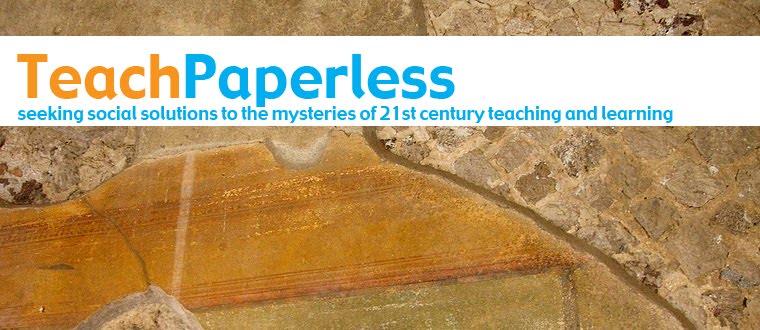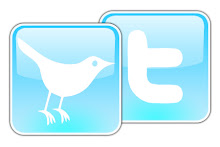Every generation has a revolution of one type or another. I think what is most pressing is that teachers/education leaders keep operating in the present and not the past, facilitating relevant and meaningful learning opportunities for their students.
On the "relevant and meaningful learning opportunities" front, I totally agree with Steve.
But, on the "Every generation has a revolution of one type or another" meme, I've got a bit of a quibble.
While it's true that each generation sees new things replace old things, few generations get to see new structures replace old structures.
Take mass communication, for instance.
Ever since the introduction of the printing press, mass communication has been accomplished by means of the few spreading ideas to the many through pamphlets, books, radio, TV, etc.
While the specific technology changed (you could say we had a 'Radio Revolution' or a 'Television Revolution'), the structure itself (top-down distribution of information) remained intact.
With the introduction of blogging and social networking, everyone is a content creator; and each content creator has the structural means to compete for a voice with every other content creator regardless of money or power. Seth Godin and others have talked extensively about this.
That structural change marks a revolution of a very unique type; for it marks a structural revolution of the very highest order.
It marks a revolution that alters 500+ years of the way we create and digest mass communication.
I'd say that the Digital Revolution -- or what more precisely might be called the Network Revolution -- is the most recent of only a handful of structural revolutions reaching back thousands of years from the Agricultural Revolution to the Industrial Revolution.
And I'm really trying to refrain from hyperbole here.
I'm literally saying that the current shift in structure that we are witnessing will result in a fundamental shift in culture and social outcomes on the order of those two previous structural revolutions.
I'm literally saying that the current shift is altering and will continue to alter our cultural and social perceptions of hierarchy and authority to degrees we can't imagine.
Disagree?
Consider the ways that the distribution of music, television, and movies has changed over the last decade. You buy CDs anymore? Really? Rush home to catch your favorite show in fear of missing it and being left out of the storyline? Really? Rent movies from a store? Really?
Now apply those patterns to school, government, and medicine.
That's just the tip of the iceberg.
We don't really know what life was like on a day-to-day basis before the Agricultural Revolution. But we do have a pretty good idea of what it was like before the Industrial Revolution.
And all we'll have to do is to look back at our scrapbooks of Polaroids to see what it was like before this one.








I agree - instead of listen, read, see we now have the ability to write, create music, and create videos and share them with the world. It is truly amazing. Think about teachers and PLN - today alone I was able to converse, in one form or another, with colleagues from around the WORLD. In real-time or pretty darn close. We also are able to collaborate, in real-time, on creating things - Google Docs and the like.
ReplyDeleteIt is truly amazing what can be done today.
I agree.
ReplyDeleteIn a pre-Agricultural Revolution world, you had a many-to-many creator model of distribution. The community tool maker would trade flint arrowheads for food or beads or clothing. The clothing maker would trade chert awls for beads or arrowheads or food. But there were a limited number of professions to work, and most of life was a struggle for survival.
Now... we've got an agriculturally-based centralized state with an industrialized complex on top of that, and a realm of services on top of that. It's changing how we do medicine, and it's already smashed through most of our storytelling mechanisms, and it's radically transforming the way we share and distribute the visual arts.
Thinking that it won't transform our teaching technique, or even the basic nature of schools? Pfah. Might as well expect fig trees to produce lemonade.
Which is coming, by the way... as soon as the geneticists (who were bored in school) to figure it out.
I'm amazed at this digital revolution on a daily basis. Everyone has the potential to lead there own revolution with the bottom up and lateral leadership available via the instant printing presses of the blog, twitter, facebook etc. Our students who blog write well because they have more readers than just their teachers. They think carefully. It's doing something positive to our brains as Don Tapscott explains in his book Grown Up Digital.
ReplyDelete